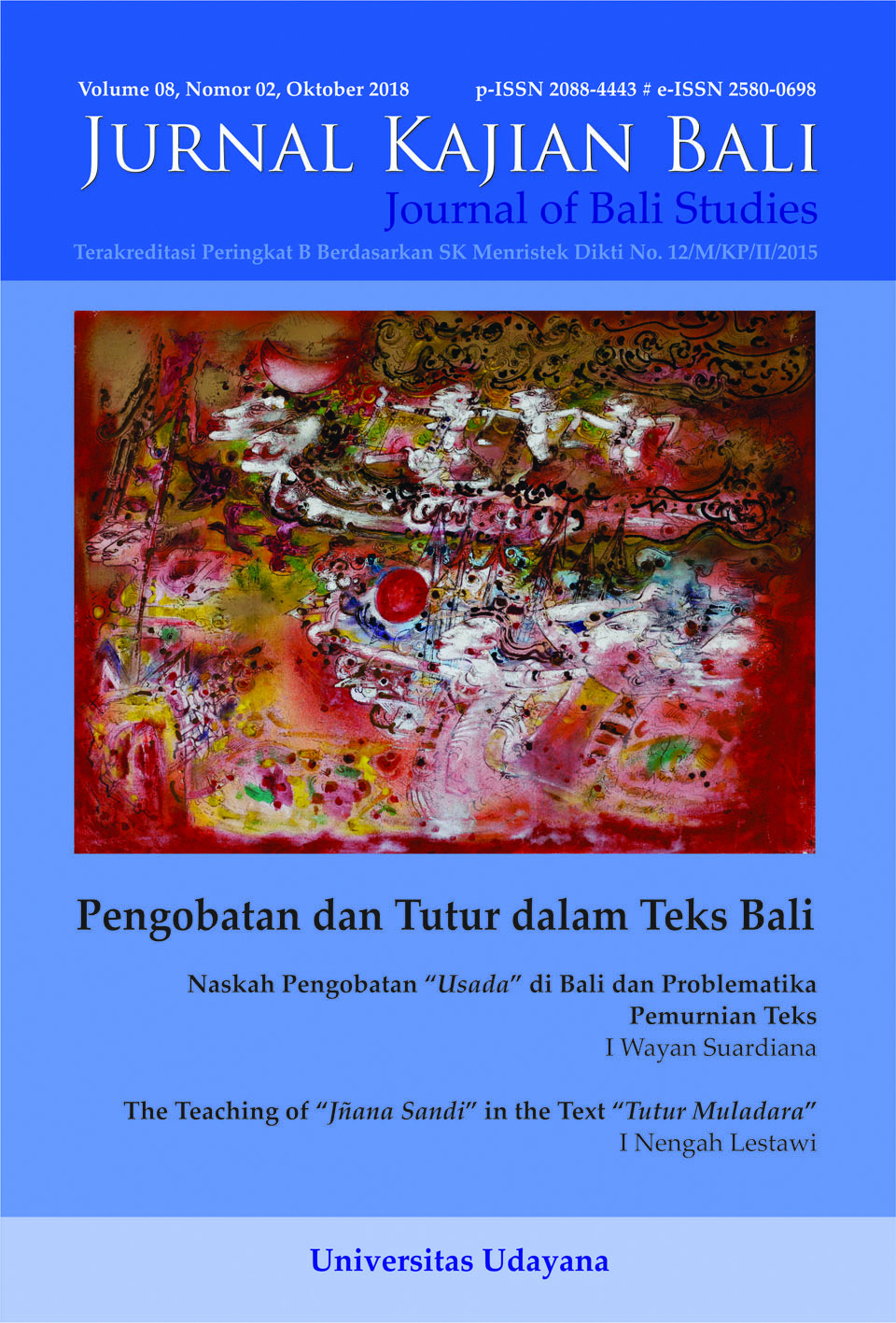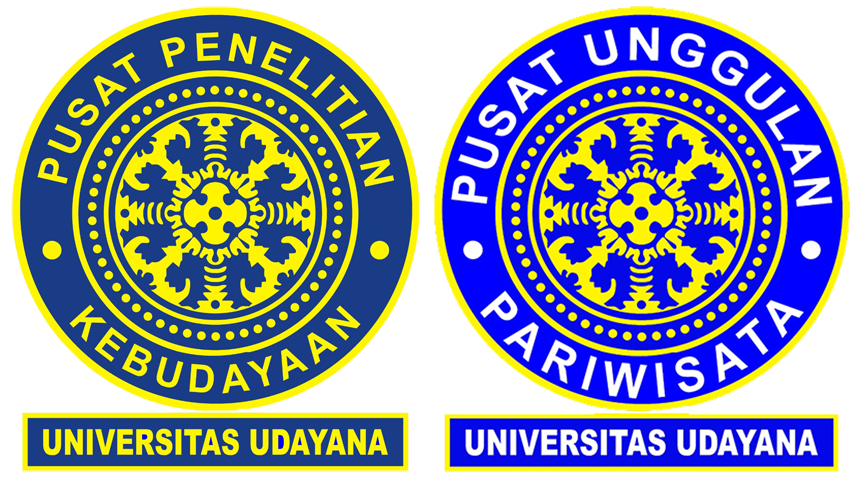Verba Ujaran dalam Bahasa Bali
Abstract
This article analysed Balinese verbs from the study of semantics combining the theories of Natural Semantic Metalanguage (NSM) dan speech acts. The analysed verbs in this article were the speech verbs with illocutionary function. Data were collected through note taking and library research. Data were taken from printed resources, books, and the intuition of the researcher as a Balinese native speaker. The method of analysis was descriptive qualitative which classified data, analysed semantic structures of the speech verbs, and described the semantic components to formulate meaning configuration. The result of the analysis showed several speech verbs in Balinese had illocutionary function, including: 1) assertive (ngorahang ‘telling’, nyambatang ‘mention’, nuturang ‘telling’); 2) directive (nunde?n ‘enjoin’, nagih ‘billing’, nuturin ‘advise’); 3) commissive (mejanji ‘promising’, metanje?nan ‘offer’); 4) expressive ngajumang ‘praise’, ngame?lme?l ‘complain’, see ‘blame’, matbat ‘berate’, ngamadakang ‘pray’); and 5) declarative (ngadanin ‘naming’, nombang ‘forbid’).
Downloads

This work is licensed under a Creative Commons Attribution 4.0 International License.



















